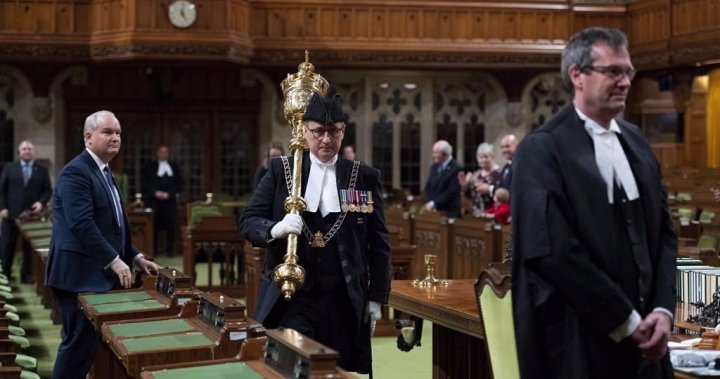A senior House of Commons security official, Patrick McDonnell, has revealed that in the last six months, two potential employees were denied employment in Parliament due to concerns of foreign state influence. McDonnell, who serves as both the sergeant-at-arms and corporate security officer, shared that over the past five years, a “handful” of individuals have been denied employment on the suspicion of being influenced by a foreign state. Additionally, there has been a significant increase in secondary interviews with prospective staffers, known as “resolution of doubt” interviews, over the past few years. These interviews are conducted when preliminary security screening and loyalty investigations raise questions about a potential employee’s background.
McDonnell’s testimony was part of the ongoing federal inquiry led by Quebec appeal court judge Marie-Josée Hogue into foreign interference in Canada’s democratic institutions. Hogue has already determined that while foreign states did engage in influence campaigns during the 2019 and 2021 general elections, the integrity of the results was not compromised. However, her preliminary report highlighted that some candidates in the 2019 election were willing to accept help from foreign states, and that foreign interference operations were not limited to political candidates alone. Affiliates of the People’s Republic of China were found to have a direct connection to political candidates and staffers, some of whom were willing to cooperate in foreign interference-related activities.
As staff on Parliament Hill play crucial roles for MPs and senators, they hold positions of trust within the political structure, making them targets for foreign actors seeking to influence Canadian politicians. Prospective staffers undergo security screening by both the RCMP and the Canadian Security Intelligence Service (CSIS) before being hired and granted access to parliamentary networks. The process includes a basic criminal background check by the RCMP, a loyalty screening by CSIS, and a review of the individual’s history over the past five years to assess loyalty to Canada. In cases where concerns arise or information is incomplete, secondary “resolution of doubt” interviews are conducted to ensure the protection of parliamentary networks and institutions.
The current phase of the Hogue inquiry is ongoing and expected to continue until October 16th, with testimonies from top security and intelligence officials, senior bureaucrats, and cabinet ministers, including Prime Minister Justin Trudeau. Hogue has until the end of the year to produce a final report on foreign interference in Canadian elections. The inquiry has shed light on the vulnerabilities present in the political landscape to foreign interference, particularly in the recruitment and hiring processes for parliamentary staffers. It also underlines the importance of robust security measures and thorough background checks to safeguard against foreign influence and protect the integrity of Canada’s democratic institutions.
McDonnell’s testimony underscores the seriousness of the issue of foreign interference in Canadian democratic processes and the steps being taken to mitigate these risks within the Parliament. The increase in secondary interviews and scrutiny of prospective staffers reflects a proactive approach to safeguard against foreign state influence. The ongoing inquiry led by Judge Hogue aims to delve deeper into the issue of foreign interference and identify potential vulnerabilities within Canada’s democratic systems. The findings and recommendations resulting from the inquiry are crucial for enhancing security measures, strengthening defenses against foreign interference, and upholding the integrity of Canada’s electoral processes.


